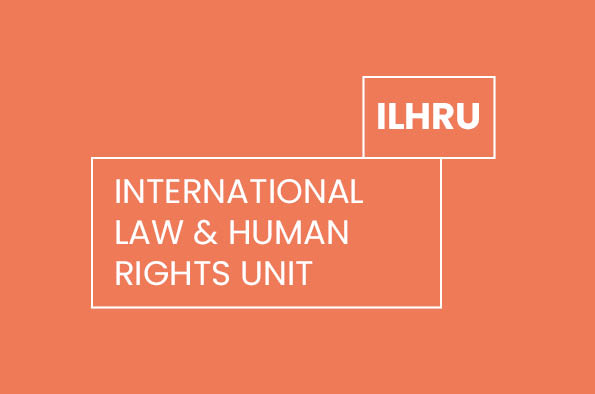
Statute of limitations of criminal liability and the principle of legality. Interferences between the jurisprudence of the ECHR, the CJEU, and the courts in Romania
- Marketing, Recruitment and Events Team
- Admission: Free to attend, please register
- Event website
- Book now
Add this event to my calendar
Click on "Create a calendar file" and your browser will download a .ics file for this event.
Microsoft Outlook: Download the file, double-click it to open it in Outlook, then click on "Save & Close" to save it to your calendar. If that doesn't work go into Outlook, click on the File tab, then on Open & Export, then Open Calendar. Select your .ics file then click on "Save & Close".
Google Calendar: download the file, then go into your calendar. On the left where it says "Other calendars" click on the arrow icon and then click on Import calendar. Click on Browse and select the .ics file, then click on Import.
Apple Calendar: The file may open automatically with an option to save it to your calendar. If not, download the file, then you can either drag it to Calendar or import the file by going to File >Import > Import and choosing the .ics file.
The European Court of Human Rights has analyzed the applicability of the limitation period for criminal liability from the perspective of art. 7 of the European Convention on Human Rights, which enshrines the principle of legality of criminalization and non-retroactivity of criminal law. In Romania, the Constitutional Court has twice declared the legal provision that allowed the interruption of the limitation period to be unconstitutional. As a result, several decisions of domestic courts have been contradictory, and the Court of Justice of the EU has been called upon to interpret the applicability of the limitation period. The decisions of the Court of Justice have come into conflict with the jurisprudence of domestic courts.
Professional experience:
Razvan Horatiu Radu, has been a magistrate - prosecutor for 24 years. Currently, he is a prosecutor at the Prosecutor's Office attached to the High Court of Cassation and Justice, ensuring the representation of the prosecutor's office at the hearings of the Constitutional Court and the High Court of Cassation and Justice. He also served as deputy prosecutor general (2019-2020).
He worked as an investigative prosecutor at the Bucharest 6th District Court Prosecutor's Office and at the Bucharest District Court Prosecutor's Office (2003-2006).
As a magistrate seconded to the Ministry of Foreign Affairs, he served as an Agent of the Romanian Government for the ECHR (2007-2011) and for the CJEU (2011-2018). In the past, he also worked for Superior Council of the Magistracy as head of the European Affairs and International Relations Service (2006-2007).
Academic and research experience:
Razvan Horatiu Radu is a Professor at the Faculty of Law of the Bucharest Academy of Economic Studies. Since 2007 he has worked as a Lecturer and PhD Lecturer at various universities in Romania: Bucharest University (Faculty of History), Romanian-American University (Faculty of Law), Iasi University (Faculty of Law). He published more than 30 works (university courses, research articles, research papers etc.) in the field of European Human Rights Law, European Union Law and Criminal Law.
Since 2007, he has been a trainer or expert at the National Institute of Magistracy, the National Institute for the Training of Lawyers, the Romanian Diplomatic Institute dealing with the training of judges and prosecutors, lawyers and diplomats in the field of the European Convention on Human Rights and European Union Law.
International Experience:
In addition to the representation activity as a Government Agent before the ECHR and the CJEU, he has a rich experience at the level of the Council of Europe, being a member elected in respect of Romania of the European Committee for the Prevention of Torture and Inhuman or Degrading Treatment or Punishment (CPT) (since 2016) and of the Consultative Council of European Prosecutors (CCPE) (since 2021).
He was also involved at national level, as an expert, in European funding projects regarding the rights of persons with disabilities or combating hate crimes.
